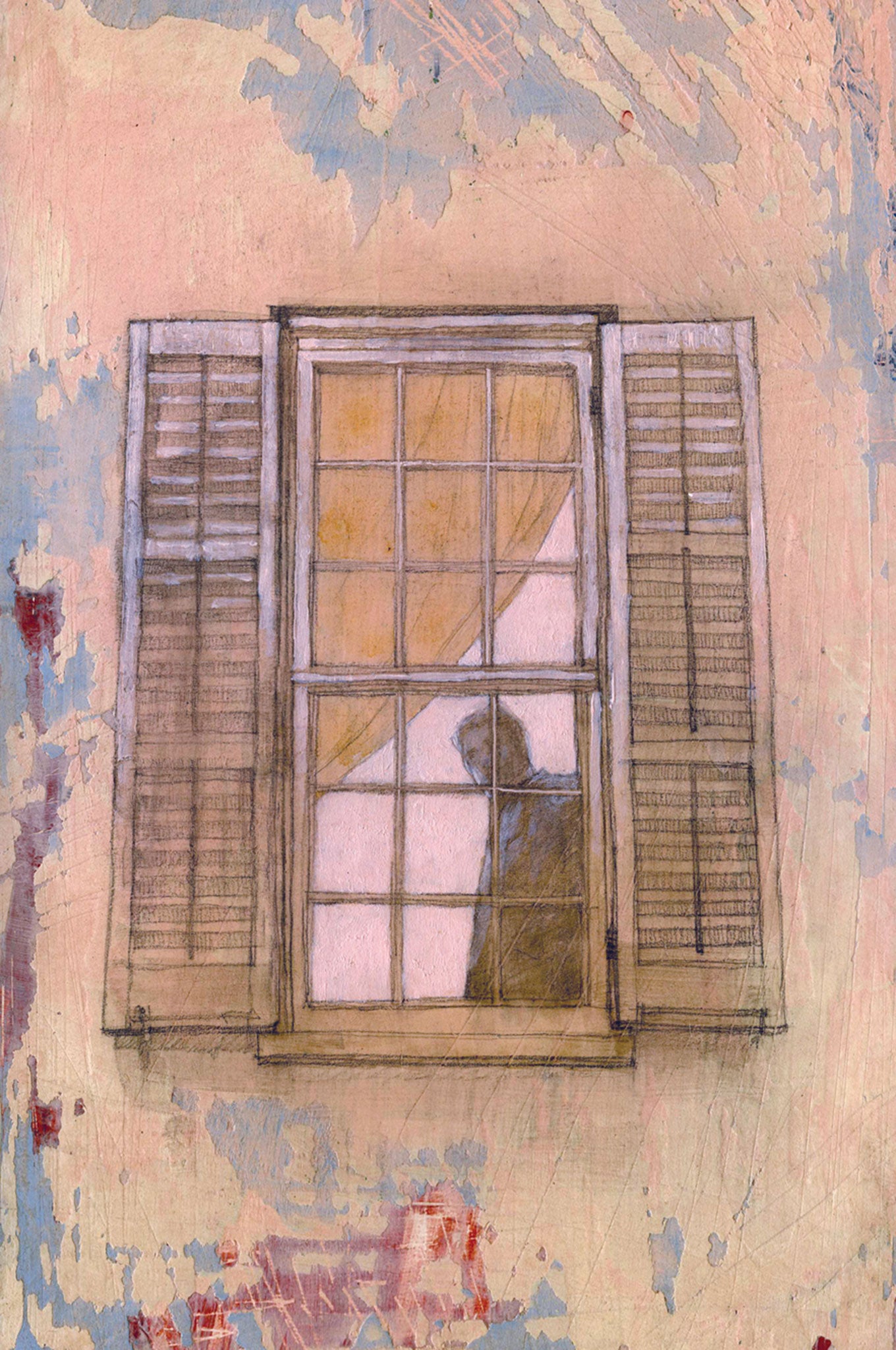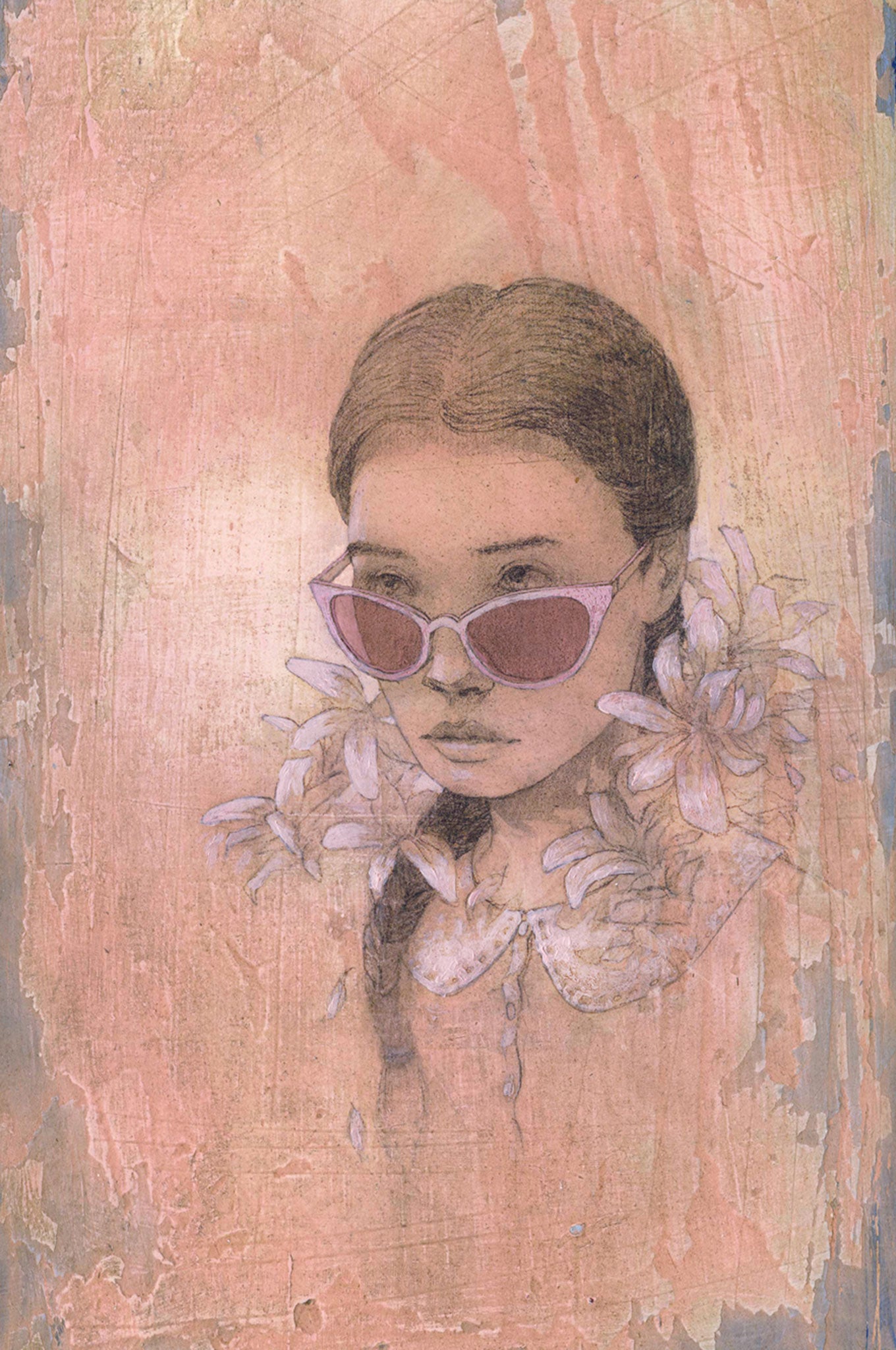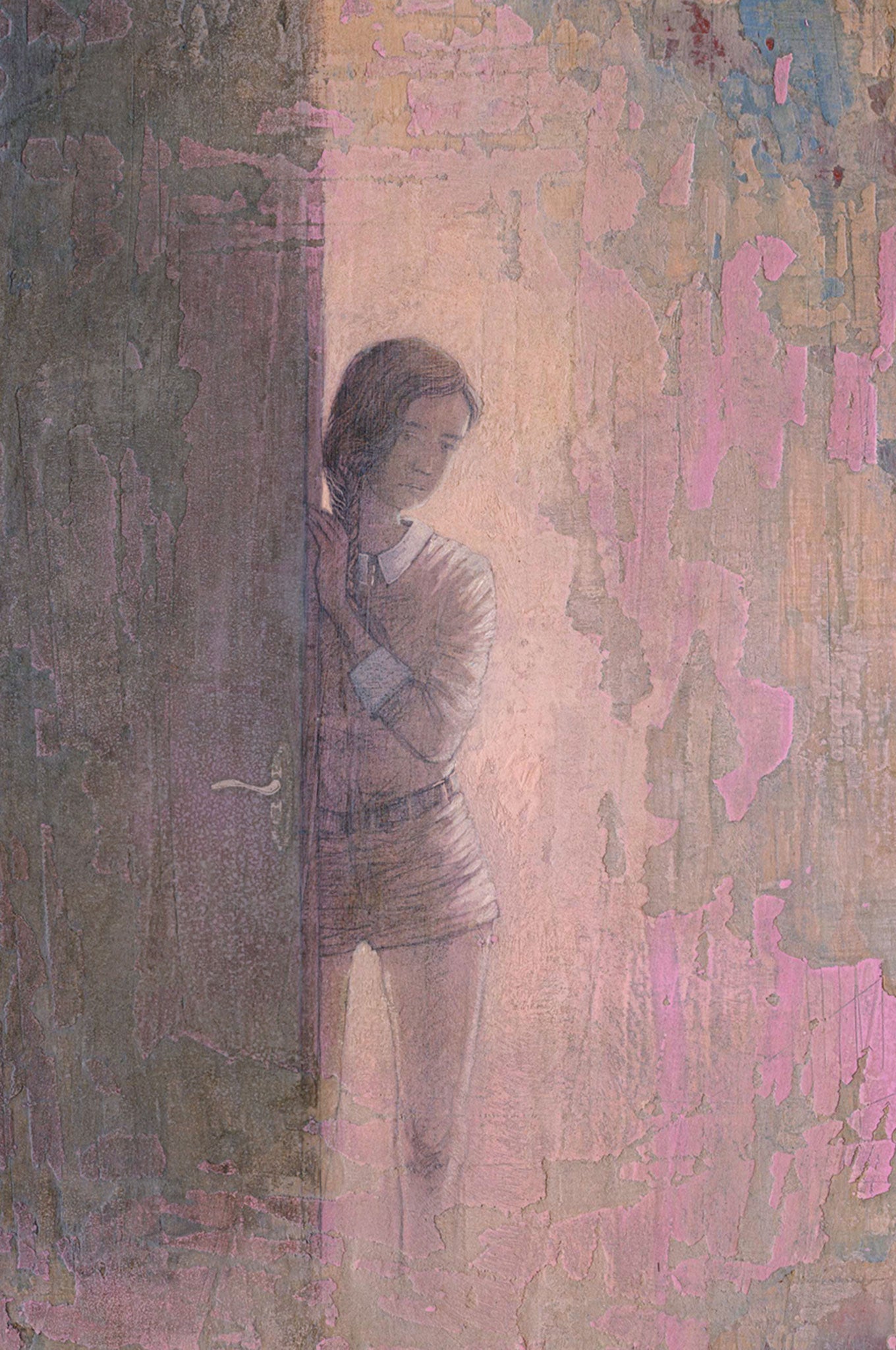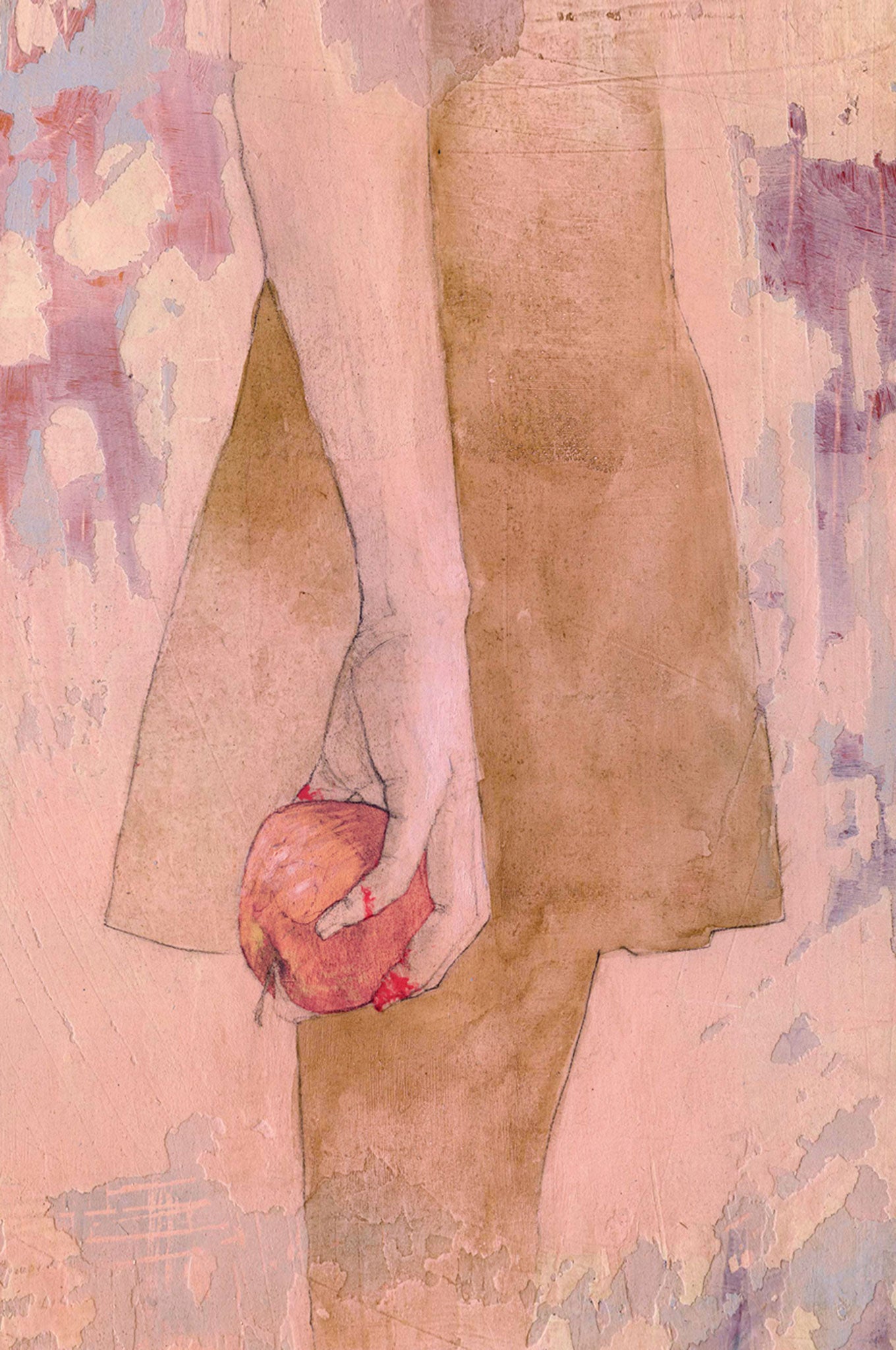Lolita: Folio Society edition of Vladimir Nabokov's famous novel features illustrations by Federico Infante
Few literary characters are as troubling or controversial as Lolita's narrator

The first illustrated edition of Nabokov's Lolita was published last month, and while the novel may not have the capacity to shock as much as it did when it was first published 60 years ago, the problem of how to visualise such a difficult subject matter tastefully remains acute.
Few literary characters are as troubling or controversial as the book's narrator Humbert Humbert, a middle-aged academic with a sexual fixation on his landlady's 12-year-old daughter - later his step-daughter.
But the new edition of the book itself is beautiful; a bound copy with the title spelled phoenetically, as Humbert pronounces it, on the cover: "Lo. Lee. Ta."

At the back, Folio has reprinted Nabokov’s 1957 essay “On a Book Entitled ‘Lolita’”, where he confronted objections to the novel, while the front features a wonderful introduction from Washinton Post book critic Michael Dirda, who notes that the author seems engrossed in "an intricate chess game with an unknown opponent".
Dirda outlines that, while the humour found in the novel can be “disconcerting”, there is "Nothing cheap or meretricious about Nabokov’s ultra-subtle book".
Nabokov himself told the BBC in 1972 that the book was "a special favourite" of his.
"It was my most difficult book,” he said, “the book that treated a theme which was so distant, so remote, from my own emotional life that it gave me a special pleasure to use my combinational talent to make it real."
Folio Society Art Director, Sheri Gee, said of the task: “I'll be honest – in the beginning, I did not particularly relish the idea of producing an illustrated edition of Lolita.
"On first reading, I found it hard to detach from Humbert's mind, leaving me with a faint sense of dread in how we should approach this. There is so much you don't want to see and that shouldn't be portrayed on paper. I had to remove Humbert from my inner ear, to skew the perspective slightly from the protagonist's and try to find a direction that would sit alongside the narration, would reflect its sordidness but not in a literal reenactment."

She commented that finding the work of Chilean artist Federico Infante was the perfect solution.
"I had seen some of Federico's beautifully sensitive pencil drawings of young women, juxtaposed with rough textures like flaking paint. They seemed to speak of Lolita's life as she's drawn alongside Humbert - something beautiful and vulnerable lead into a world of decay."

The artist himself, Federico Infante, answered some questions on the book and his illustrations for The Independent.
How did you go about approaching the sensitive subjects in Lolita?
The subject of the story is a difficult one to read, it's hard to only have a vision of their perspective, from the distorted eyes of Humbert. So my challenge was to try to perceive the images of young Dolores as the innocent 12 year old that she is. I did it as a reader first, over-looking Humbert's narration and keeping her young and free of sensuality. This was also one of the main objectives that Sheri (The Folio Society’s Art Director, Sheri Gee) wanted in the book and motivated me to be part of this project. After reading the book a few times and going over the selected quotes, we worked hard to preserve, as much as possible, the images that resonated in my mind when I read the book.
Alongside the illustrations and the figurative elements of the images that came with the project, Sheri and I agreed on the importance of atmosphere. The suggestive space where these characters stood needed to be related to the density of the story. That's why in the illustrations the figures are emerging from an old, decaying and textured background.
What made you decide to use those scenes and positions in particular – the apple, and sunglasses specifically
These two images were an immediate response to the story, we worked on them later with Sheri but the main idea remained intact from the beginning. Dolores peering over her sunglasses is the introduction to her character in the book. Of course, Nabokov wants us to see her from Humbert's perspective but I tried to portray her as the young girl that she is. The lilies around her are a symbolic element that also comes from that scene in the book. I believe that they show us why Humbert's perspective is so distorted, Charlotte Haze is showing him the flowers in the backyard and his response is "beautiful, just beautiful" but we know that his eyes were focused on Lolita.
The image of the apple comes from another moment in the book, and again from Humbert's narration:
"...she had painted her lips and was holding in her hollowed hands a beautiful, banal, Eden-red apple."
I couldn't overlook the strong symbolism of the apple. I also decided to balance it with a reminder of the innocent act of Lolita 'playing' at being a grown-up by painting her lips. In this way, you'll see how her fingers are still marked with the red paint.
What are your views on Lolita as a literary work?
The tension that Nabokov created between the sensitive subject matter and how beautifully the story is written is, in my opinion, what makes this book a masterpiece. As readers, we are seduced by Nabokov's flow and immersed in the atmosphere that he builds, only to be reminded by our knowledge of reality as to how dark and distorted the story really is.
Was the fact that the narrator is viewed as unreliable in the novel a problem at all when it came to visualising those scenes?
Yes, it was. Humbert is not to be trusted and he happens to be the narrator of the story. This would be fine if you're just reading it, but in the process of visualizing and creating the illustrations, it is necessary to detach yourself from him and the try and understand the whole picture. You need to find the images that truly resonate with you as an artist and in this case use the art of Nabokov to ignite your own.
The Folio Society edition of Lolita by Vladimir Nabokov is published by The Folio Society, and is available for purchase here
Join our commenting forum
Join thought-provoking conversations, follow other Independent readers and see their replies
Comments
Bookmark popover
Removed from bookmarks